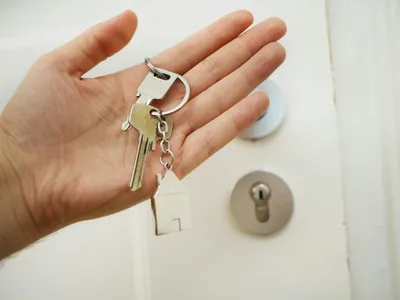What Is a Reverse Contingency? A Smart Strategy for Sellers Who Still Need to Buy
If you’re thinking about selling your home but you’re worried about finding your next one, you’re not alone. It’s one of the most common concerns I hear from homeowners—especially in today’s market, where inventory can be tight. The good news? There’s a solution built right into the contract process that can give you some breathing room: it’s called a reverse contingency
What Is a Reverse Contingency?
A reverse contingency is an addendum that sellers can include in their listing to include for buyers contract that makes the sale contingent on that seller finding a suitable home to buy before closing on their sale. In other words, the seller reserves the right to cancel or delay the sale on THEIR property if they are unable to secure their next home within a set time period.
Think of it as the flip side of a buyer’s home sale contingency. Instead of the buyer needing to sell a home to buy yours, you—as the seller—are saying: “I’ll sell you my home if I can find my next one.”
Why Use a Reverse Contingency?
Selling your home before finding a new one can be stressful. Without a plan or place to go, you could end up scrambling to rent or move twice. A reverse contingency gives you flexibility, allowing you to:
- Secure a buyer while still shopping for your next home
- Avoid being rushed into a purchase you’re not happy with
- Protect yourself from being temporarily without a home
- Maintain negotiating power by not appearing desperate to close
How It Works
Once you accept an offer, the reverse contingency clause addendum offers the seller a window—often anywhere from 7 to 30 days—to find a home. If that seller does, the deal moves forward as planned. If not, the seller has the right to walk away, and the buyer can move on without penalties.
The specifics can vary depending on the market and the language in the contract, but the key point is this: you’re not locked into selling unless you’re ready.
Is a Reverse Contingency Right for You?
Reverse contingencies work best in situations where:
- You know you want to sell but haven’t yet found the right next home
- You’re concerned about timing and need more control
- You’re selling in a seller’s market, where buyers are more willing to accept your terms
If the market is competitive and you price your home right, many buyers will agree to a reverse contingency because they want the chance to purchase your home—even if it comes with a little extra wait.
Final Thoughts
If you’re on the fence about selling because you’re worried about where you’ll go next, let’s talk about whether a reverse contingency might be the right move for you. It’s one of several strategies available to help sellers move forward with confidence—on their timeline.
Have questions about how it could work in your situation? I’m always here to help.



